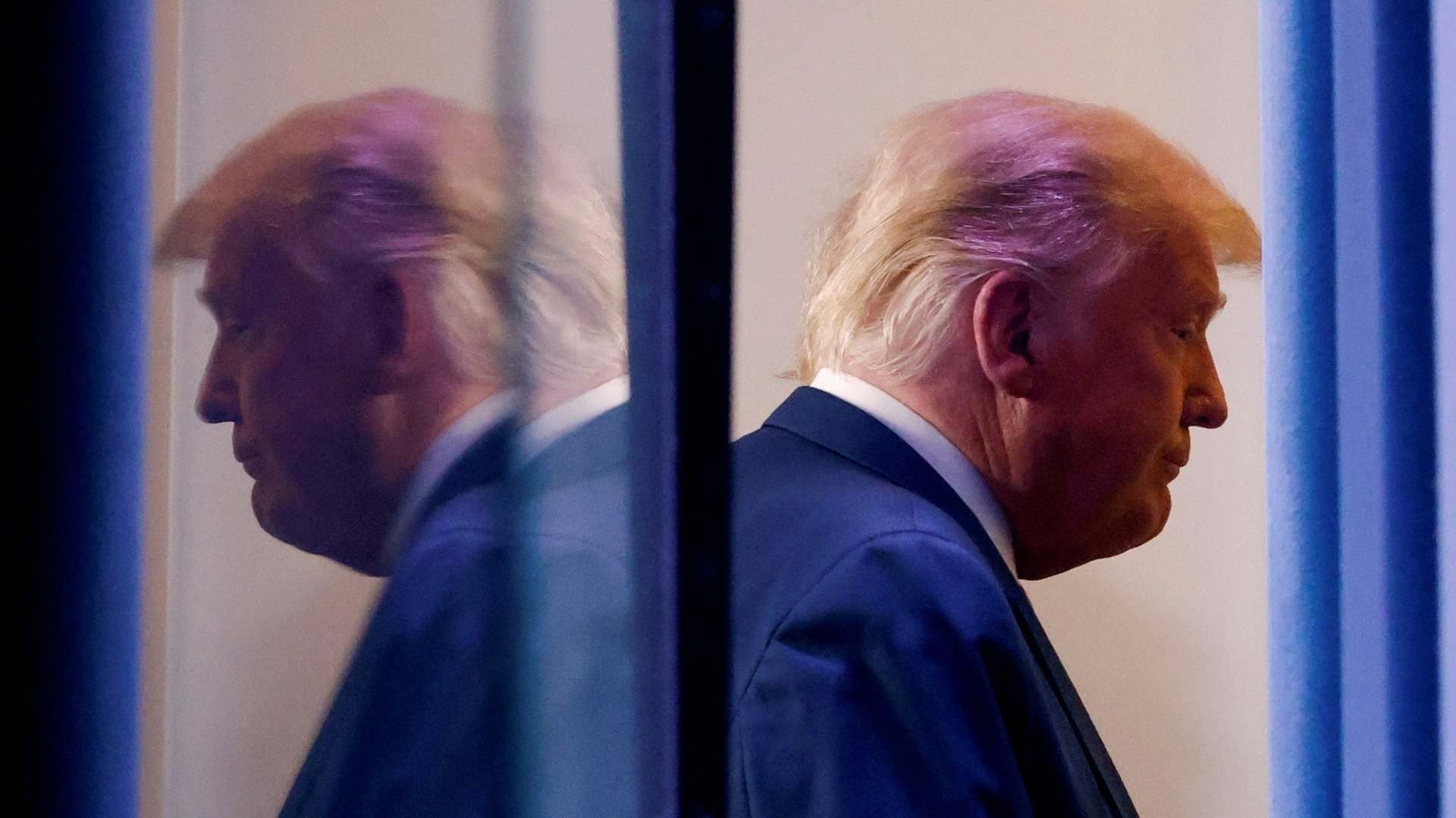Where Trump’s loss fits in the history of US presidential elections
US economic fortunes have been influencing presidential outcomes since the times of George Washington. Over the past two and a half centuries, Americans have tended to vote out incumbents when the economy sours, and rewarded them with another term when it’s thriving, a phenomenon that political scientists call “retrospective economic voting.” For example, in 1980, amid raging inflation and lackluster growth, Jimmy Carter was pummeled by Ronald Reagan. Four years later, with the economy booming, the incumbent won by a landslide.


US economic fortunes have been influencing presidential outcomes since the times of George Washington. Over the past two and a half centuries, Americans have tended to vote out incumbents when the economy sours, and rewarded them with another term when it’s thriving, a phenomenon that political scientists call “retrospective economic voting.” For example, in 1980, amid raging inflation and lackluster growth, Jimmy Carter was pummeled by Ronald Reagan. Four years later, with the economy booming, the incumbent won by a landslide.
The state of the economy is not the only factor that matters, of course. As the US becomes more politically polarized, there is some evidence that partisanship is playing a bigger role in elections, and retrospective voting a smaller one. Still, looking at the 2020 election through the lens of the economy offers a useful starting point for gauging the result.
“There’s such a strong relationship between income growth and presidential voting,” says Gabriel Lenz, a political economist at the University of California, Berkeley, who has correlated economic indicators to electoral results going back to the 1790s. What he and his co-authors have found is surprisingly consistent, as the chart below shows.
So where does Donald Trump fit? Given the wild economic swings over the past year, including the huge influx of government aid during the pandemic, we used two income measures to situate him, one taking into account the stimulus passed by the US Congress in late March, and the other without it. Because we still don’t have the final election results, we used a range for Trump’s losing margin of between 3% and 5%. (Lenz’s analysis focuses on the popular vote, not the electoral college results.)
If we include the stimulus, it looks like voters punished the president more harshly than his predecessors, though not enough to make this year an anomaly. And it’s also very likely that the 2020 income figures present an overly rosy picture, because they don’t include data from October, which we still don’t have. By then, many Americans had already gone through the $1,200 checks and other federal help they received.
Without the stimulus, Trump is closer to the historical trend—he did ever so slightly better than the economy sans stimulus would predict. That could explain why the president was keen on sending a second-round of checks even if congressional members of his own party decided to hold off. Had he succeeded, the election might have turned out differently. “It was essential,” says J. Edwin Benton, a political science professor at University of South Florida, of the extra stimulus. “It could have helped Trump and may have put him over the top.”
What about accountability?
Economic growth and presidential results may be pretty much in lockstep, but that doesn’t necessarily result in great electoral choices. Voters tend to focus only on what happened in the quarters preceding the election, not a president’s full term, research shows. Furthermore, what’s going on in the economy might have little to do with an incumbent’s performance—or even worse, it might be the result of presidential election-year gimmicks designed to garner support.
Sometimes, it’s been the incoming president who benefited from his predecessor’s work. Carter took office amid high inflation that previous presidents had been unable or unwilling to tame. By the end of his term, Federal Reserve Chairman Paul Volcker, whom Carter appointed, was in the midst of wrestling it down. But it was Reagan who voters rewarded.
Voters tend to have the same short-sightedness when it comes to how governments manage national emergencies, according to research by Neil Malhotra, a professor at Stanford Graduate School of Business. “What we’ve learned from disasters is that voters don’t really care that much about preparation,” he says. “They care a lot about the response after the fact.”
In 2020, Americans voted out an incumbent who oversaw the country’s dismal pandemic response and its economic fallout. (Covid-19 has already led to nearly 240,000 US deaths.) Still, Lenz points out voting on the basis of the economy’s whims in the months prior to the election is a haphazard way to hold elected officials accountable.
“That’s a terrible way to pick a president,” he says.
With reporting assistance from Dan Kopf.